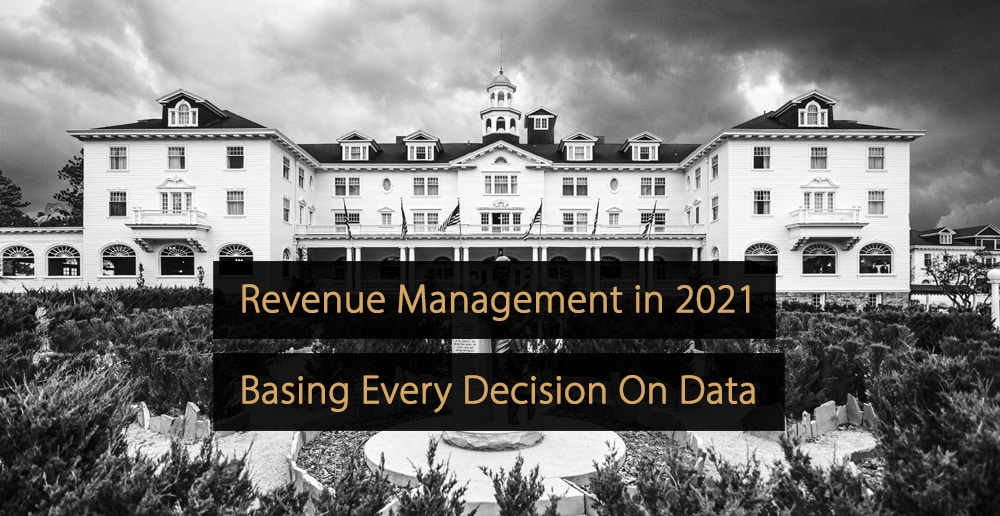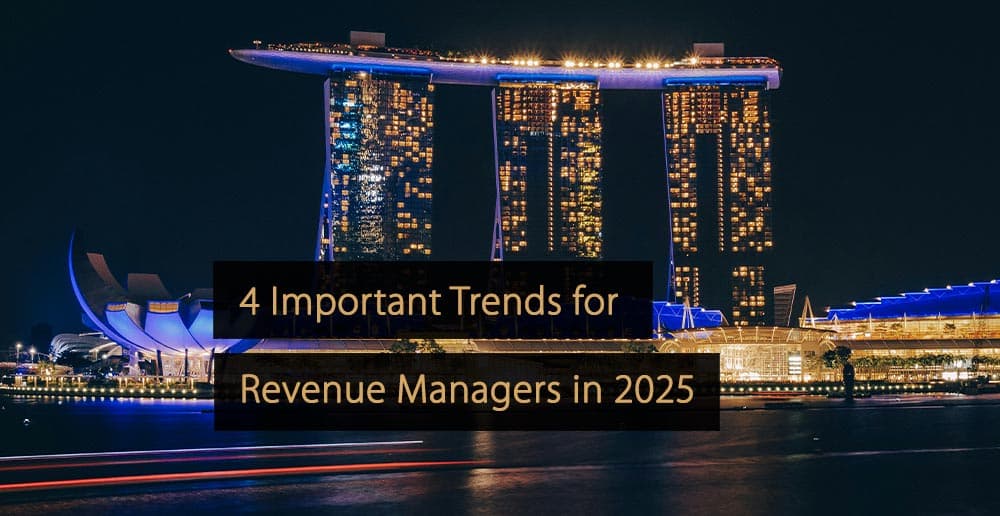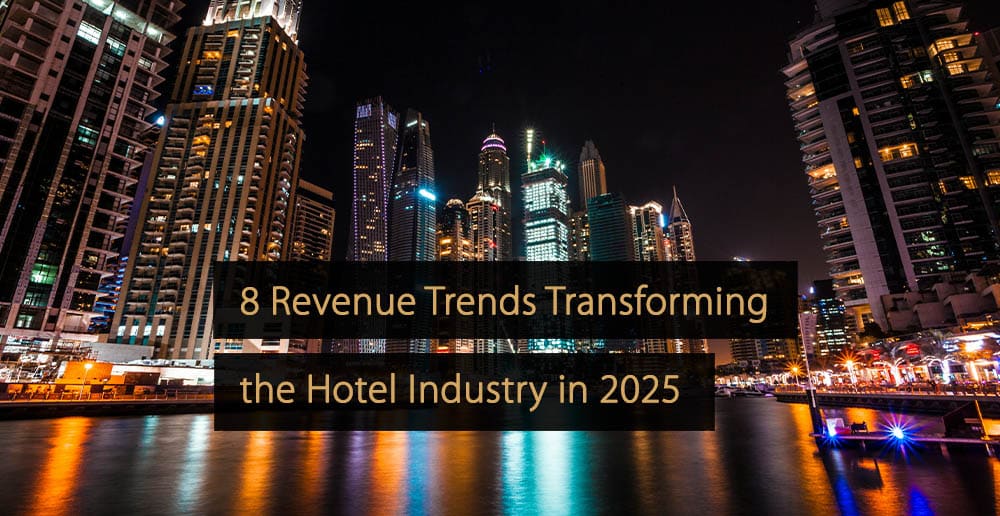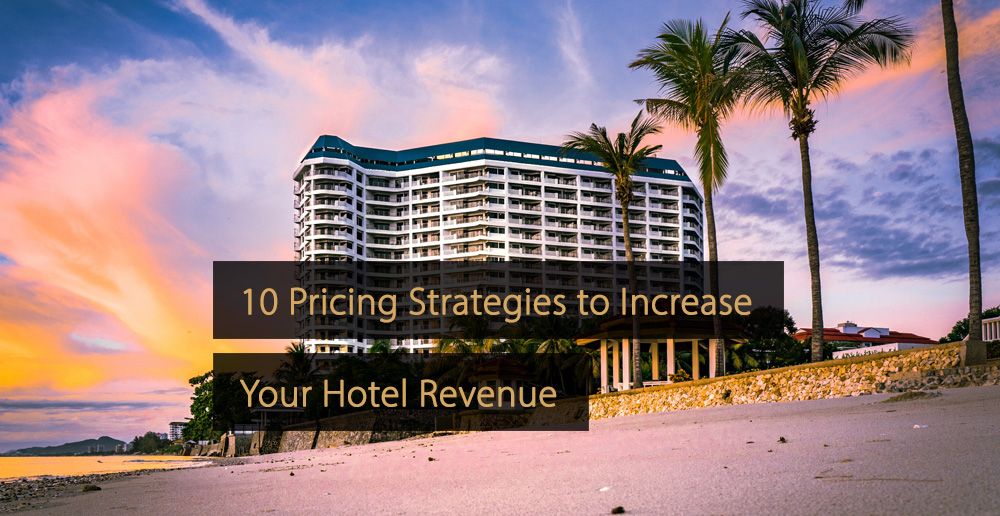In 2020, revenue managers were forced to make a massive shift. Instead of leaning on in-house on-the-books (OTB) data, historical and compset information, you now need to focus on much broader data sets. But collecting and evaluating more data takes your team more time. In this article, you’ll learn how hotels can use data for a successful post-covid recovery strategy.
Data Gives You a Deciding Edge
If your hotel is among the 87% of properties running with a smaller team (1), spending more time on any task can be challenging. Investing in collecting better data could give you a deciding edge, though, especially in the extremely competitive recovery phase. Why? Because if you can access, analyse and act on relevant data faster than your compset, you can seize business opportunities before they do.
The most effective way to do that even if your resources are limited is to automate manual processes, implement new tech tools and leverage future-facing data.
How Revenue Managers Used Data During Crisis Recovery in the Past
The hospitality industry is no stranger to drastic interruptions. Just think of 9/11, the 2003 SARS outbreak and the 2010 eruption of Eyjafjallajökull in Iceland. While these events had a drastic negative impact on the hotel industry in certain countries or regions, there was always V- or U-shaped recovery. Therefore, revenue managers could still rely on historical data to forecast demand.
The Covid-19 pandemic has lasted longer and had a more substantial impact on more countries worldwide than the previous crises. As a result, we’re more likely to see a prolonged L-shaped recovery phase. This period will be marked by heavy competition as hotels that suffered from lockdowns and travel restrictions fight for every booking.
There’s another challenge arising though. New trends like digital events and remote work have changed how people work and do business. Companies small and large embraced working from home, and many want to keep it that way even after the pandemic passes (2). Naturally, this may make you wonder if and how the MICE industry (3) and your corporate segments (4) will develop during and after recovery.
Previously, a look at your historical data would have allowed you to predict when demand would return. However, Covid-19 brought unparalleled, lasting changes that have made historical data mostly irrelevant.
Data Quality in Revenue Management in The Past vs. The Future
On top of the apparent impact the pandemic had on the hotel industry (e.g. closures and mass-furloughs), you’ve probably seen significant changes behind the scenes as well. In the domain of revenue management, for example, the process of collecting, structuring and evaluating hotel, compset and market data has changed dramatically.
In the recent past, you and your team likely did this manually and gathered data in massive Excel spreadsheets. On top of being hard to analyse due to their size, these files are also outdated as soon as your compset changes its rates or demand changes. This often created challenges in day-to-day decision-making. However, you could still rely on your experience and knowledge of the market to make appropriate pricing decisions. Today this is different because post-Covid recovery will look nothing like other bounce-backs. That means historical data doesn’t offer the guidance it did before, and a new solution is necessary.
Using Data for Successful Post-Covid Recovery
Broad, dynamic data sets are what you need for a successful revenue management strategy in the future. This means focusing on live and, if possible, forward-looking data. This will allow you to understand price elasticity, forecast accurately and make smart pricing and distribution decisions. That is your chance to capitalise on emerging opportunities ahead of your compset.
Analysing Inbound Search Volume by Source Market
Examine live changes in flight and booking search volume to see the first signs of demand shifts in 2021 and beyond. That shows you how the demand for your destination increases over time. You’ll also see which dates will see high compression in the future. If you know this before bookings are made, you can optimise your rates ahead of time to get more reservations at higher prices.
Take a closer look at search trends to see which source markets are most interested in your country or city. That allows you to geo-target your marketing campaigns and get more return on your ad spend.
Discovering Future Travel Patterns
After you’ve analysed your source markets and potential travel dates, take a look at how long guests want to stay (LOS – length of stay). This knowledge makes it easier to bundle services into value-packed offers you can advertise in your geo-targeted campaigns. This approach can significantly increase your conversion rates because you’re offering packages that are tailored precisely to your target audience’s desires.
“With the little pace and pick-up visibility, hoteliers and revenue managers currently using standard or traditional tools and methods are struggling to determine an accurate forecast. But by starting with top-of-funnel data and then building a strategy around capturing those guests, optimising promotions and measuring conversion, hoteliers can ensure they’re capturing their fair share of whatever demand might be coming into the market today, as well as the surge in demand when it arrives in 2021,” says Gino Engels, founder of OTA Insight.
As this shows, live, forward-looking information offers the most in-depth understanding of future demand and travel intent. Ideally, you’d always base your pricing on this type of data. There’s a catch though. This data is both extremely time-sensitive and time-consuming to collect. Especially if you’re working with a smaller team now, the only solution to access this data is using innovative tech solutions and automation.
Modern Tech Tools for Better Decision-Making
A lot has happened in the hotel tech space in the past few years. Today, modern tools let hoteliers streamline almost every part of their operation, including revenue management. Innovative business and market intelligence tools and advanced revenue management systems (RMS) were already gaining ground among revenue professionals before Covid struck. However, now that timing and forward-looking demand data are more critical than ever before, these tools are all the more important.
If your revenue team can collect, analyse and act on live data in real-time, you’ll have a massive advantage (5) during and after the recovery phase. The most efficient and effective way to do this is to implement tools that automate manual processes like data collection. Then, even a small team can easily optimise its revenue and pricing strategy.
A forward-looking rate shopping and market intelligence tool with on-demand reporting is a must for every revenue manager today. It gives you the insights you need to keep your positioning. A comprehensive benchmarking tool is also important. It reveals your compsets future group and transient occupancy levels and lets you stay ahead of them.
Lastly, a fully automated RMS completes your set-up because it drastically reduces the time you spend on pricing and forecasting. It incorporates live demand and market changes into its real-time rate suggestions, so your hotels can take advantage of every opportunity.
Free Calculator: Revenue Management System ROI Calculator
With this revenue calculator, you discover how much revenue uplift a revenue management system can generate for your hotel. By answering a few short questions, the revenue calculator shows your hotel’s revenue potential within a few minutes.
Click here for the “Revenue Management System – Return on Investment Calculator”.
After a challenging year, the slow but steady vaccine roll-out worldwide is a reason for hope in 2021. What’s more, there are plenty of tools at your disposal to help you make a fantastic comeback.
More Tips to Grow Your Business
Revfine.com is the leading knowledge platform for the hospitality and travel industry. Professionals use our insights, strategies, and actionable tips to get inspired, optimize revenue, innovate processes, and improve customer experience.Explore expert advice on management, marketing, revenue management, operations, software, and technology in our dedicated Hotel, Hospitality, and Travel & Tourism categories.
This article is written by our Expert Partner Atomize
Partner PageSources:
(1) Ahla, survey: only 37 percent of hotels have brought back at least half of their employees
(2) CNN, These companies plan to make working from home the new normal. As in forever
(3) Oxford Business Group, How will the MICE segment survive Covid-19?
(4) McKinsey, For corporate travel, a long recovery ahead
(5) The Economist, The world’s most valuable resource is no longer oil, but data









Leave A Comment